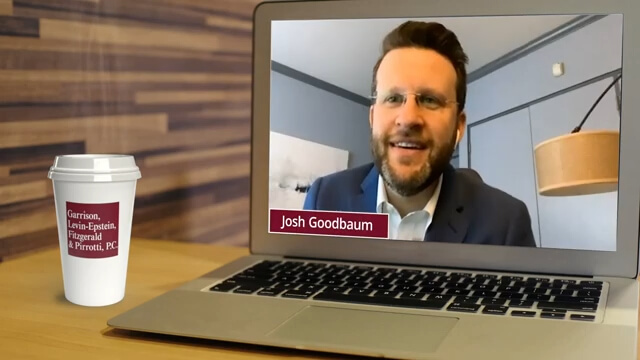Apr 8 2021
Summary: “Wrongful termination” is a term many Connecticut employees use when they believe they’ve been unfairly fired or laid off. However, for a termination to be legally wrongful, there needs to be a specific legal basis. Employment lawyers have the job of listening to the facts and determining whether the termination was potentially the result of illegal activity. Wrongful terminations can include retaliation for whistleblowing, refusal to participate in an illegal act, or discrimination based on race, sex, disability, or other protected categories. Unfortunately, many people who come to employment lawyers feel their termination was unfair but don’t have a clear legal basis for claiming it was wrongful in a legal sense. In these cases, while the termination might feel wrong, it may not meet the legal definition of “wrongful termination.”
Transcript
Josh Goodbaum: Hi, Amanda!
Amanda DeMatteis: Hey, Josh. What are we going to talk about today?
Goodbaum: I thought we could talk about “wrongful termination.” So, a lot of Connecticut employees come into our offices and they’ve been laid off, or they’ve been terminated, or they’ve been fired, and they think that those terminations were wrongful. And part of our job is to help them figure out whether that’s true. But first we need to understand: what does “wrongful termination” mean? So, what should we be telling these people?
DeMatteis: Connecticut employees need to know that wrongful termination is just this umbrella type term. And what our job is as lawyers is to listen to the particular set of facts before us and find out whether or not there is some type of legal hook in this termination. And what that means is: Was this termination a product of illegal employment activity? Was the person terminated in retaliation for something they did? Was the person terminated because they refused to participate in an illegal act? Was the person terminated because they were discriminated against in some way and that led to their termination? Those things are all illegal, and to lawyers that constitutes a “wrongful termination.”
Unfortunately, though, a lot of employees have issues where they come in and they say, “Something wasn’t right. I was terminated, it was unfair. I don’t know why, but it just wasn’t right.” For us, that’s difficult to deal with because we don’t have the legal hook to be able to say, this termination was a violation of the law and therefore wrongful. So, tough distinction to make, but we’re happy to talk to folks and try to do that and get an understanding of whether or not something illegal was done.
Goodbaum: Right, so if you’re out there thinking, “I was terminated and I think it was wrongful,” that’s fine, feel free to reach out to us. And even if there wasn’t anything illegal or you don’t think you can prove it, you can still call your termination wrongful, but a “wrongful termination” has an important meaning for lawyers – particularly employment lawyers who help employees like we do – to try to figure out whether there is something we can do to help you out with it. I hope that’s useful information, and thanks so much for joining us. Take care! Bye, Amanda!
DeMatteis: Until next time, bye!
Posted by Garrison, Levin-Epstein, Fitzgerald & Pirrotti, P.C. in Commentary
Tagged Amanda DeMatteis, Joshua Goodbaum, Wrongful Termination









